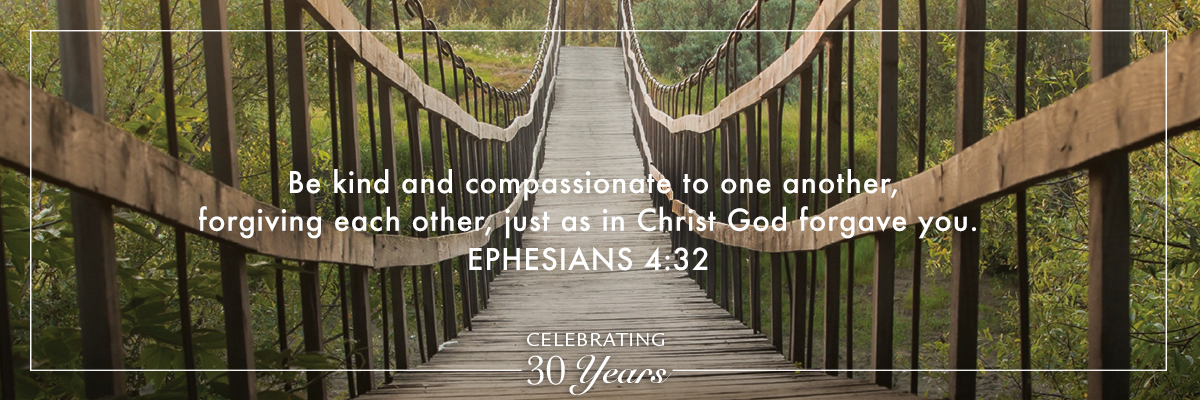

You Must Forgive
- April 19, 2018 | Luke 17:1–10
Corrie ten Boom, who was arrested for concealing Jews during the Nazi occupation of Holland, spoke at a church in Germany shortly after the war. After her talk, a man approached her. She recognized him as a guard at the Ravensbrueck concentration camp where her sister had died. He said, “Since that time, I have become a Christian. I know God has forgiven me for the cruel things I did. But will you forgive me?”
How can we possibly forgive others for the atrocities they commit against us and our loved ones? Our reading today does not pretend that this is an easy command to follow, but it also provides encouragement when we are called to the challenge of forgiveness.
Jesus instructs us that when someone repents and asks us for forgiveness, we must forgive them (v. 4). The disciples knew that this command is impossible to obey in our strength. Their response conveys the recognition of their own helplessness and God’s strength: “Increase our faith!” (v. 5). In order to offer this kind of forgiveness, we must rely on God’s work in us. And in a gracious declaration of encouragement, Jesus affirms that faith in God enables us to do miraculous feats, including forgive others (v. 6).
When we forgive, Jesus explains, we are like a servant doing his assigned duties. We are doing what is expected of us. We, to whom much has been forgiven, can do nothing else (vv. 7–10). When confronted by the prison guard, Corrie ten Boom said: “I had to do it—I knew that. The message that God forgives has a prior condition: that we forgive those who have injured us.” She shook the hand of the guard, and later said, “I had never known God’s love so intensely as I did then.”
Pray with Us
Again, please remember in your prayers our Public Saftey staff—Robert Clark, Sonya Valeff, Stacey Craelius, and Steven Cascio—as they serve on campus and at front desks to ensure a safe working and learning environment for all of us at Moody.






